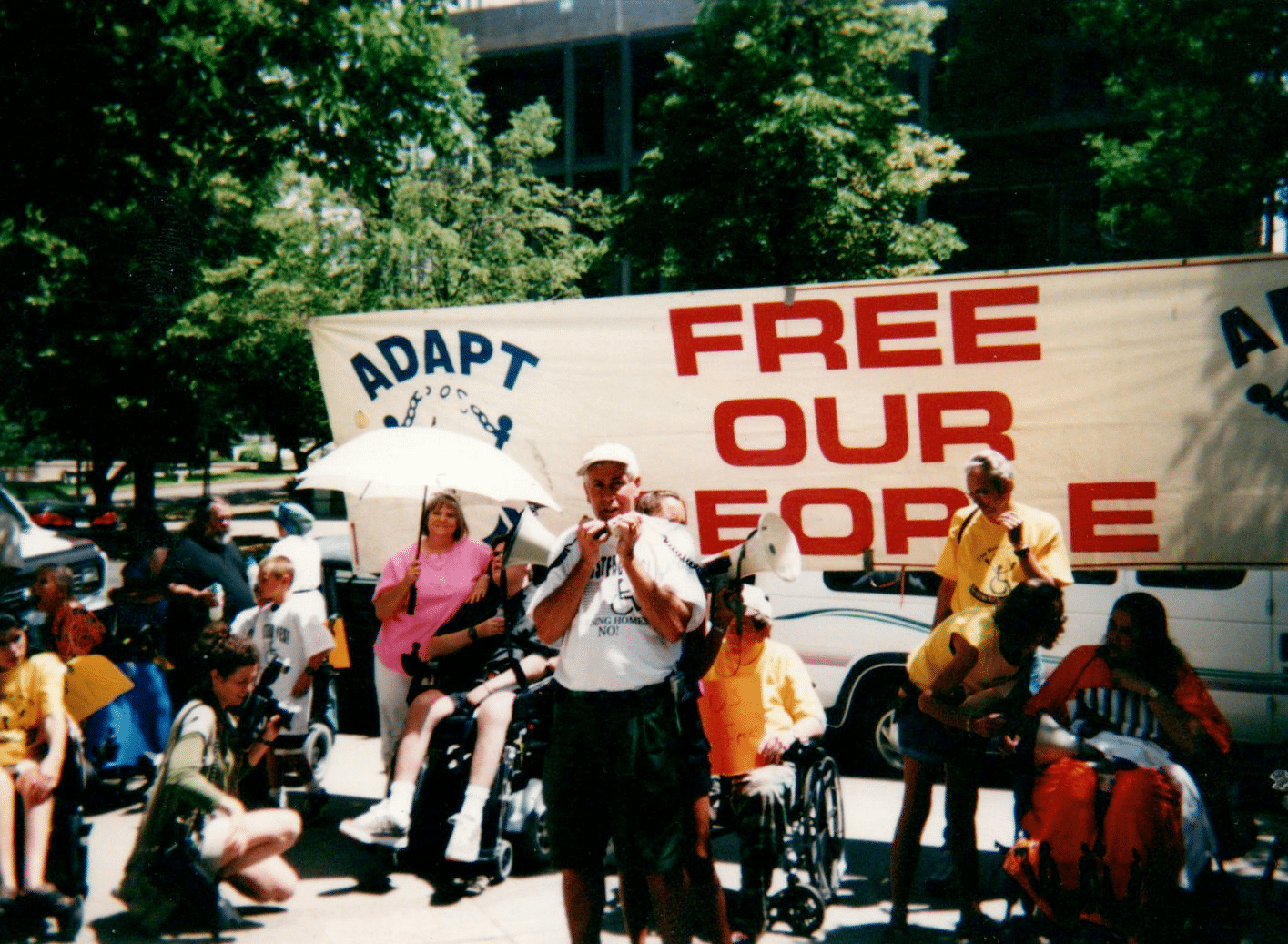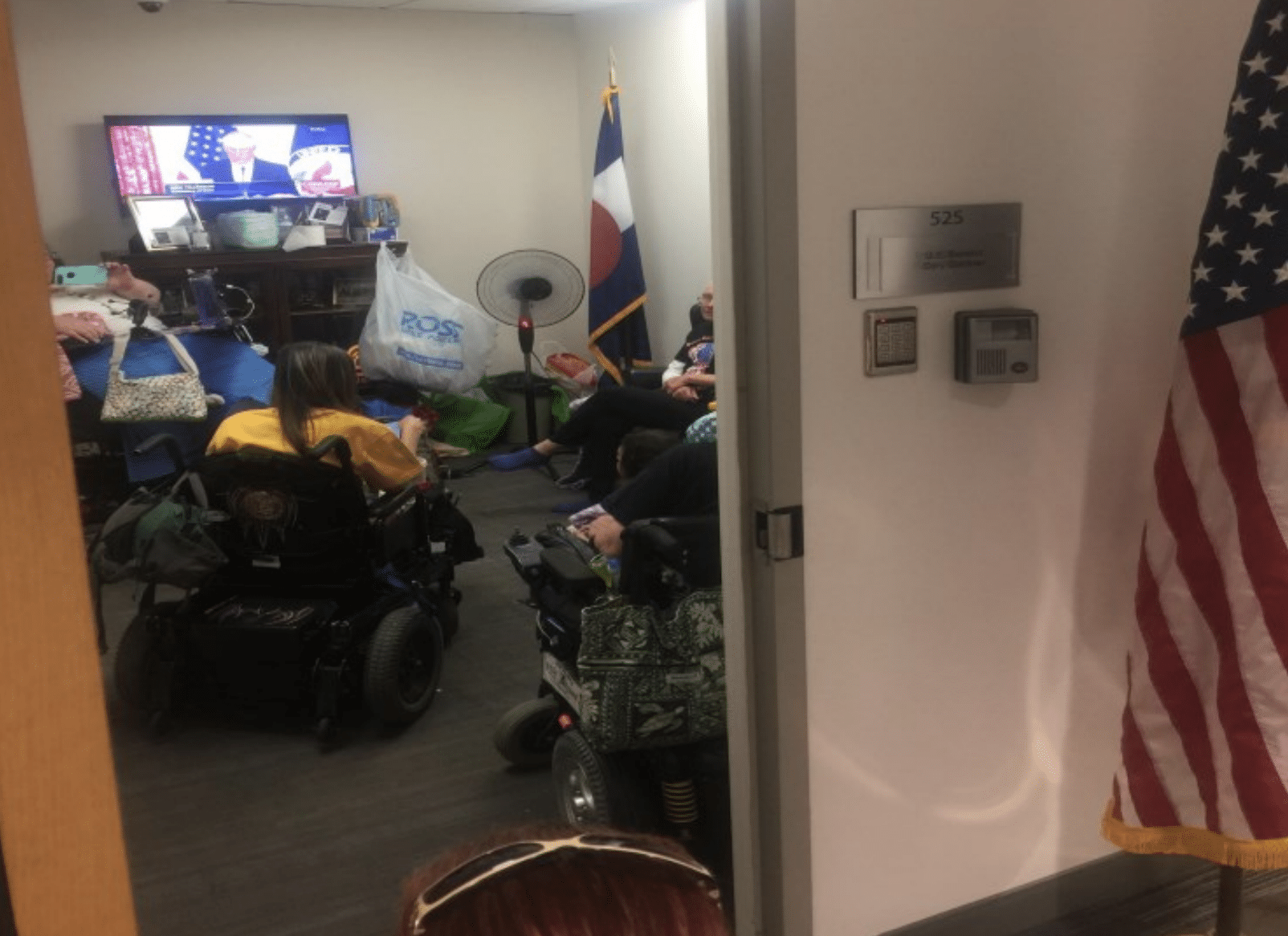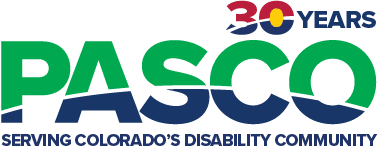Nuts and Bolts, Peanut Butter and Jelly, PASCO and Advocacy
Inevitably, when talking with Case Managers, clinics, or others new to the crowded home health care space, the conversation veers to “what makes PASCO different from your competitors?” An honest question perhaps asked with the expectation that a simple reply of “we care more” or “our passion is unparalleled” would suffice. However, since this is a business that works with people, hopefully providing these crucial services infers compassion and caring. Like most complex questions, there is nuance to the answer. PASCO can boast of being innovators in home health – we standardized a comprehensive backup and runner position to quickly respond to missed visits (1992) and have been good stewards of Medicaid monies by adopting a phone log-in system – Telephony (1996). We could also point to the fact that we worked with the State to develop Pediatric Personal Care (2016), which was created in response to probably our most innovative creation…Paid Family Caregiving (1999). We could look at our other key guiding principles and discuss our ethics, willingness to learn, teamwork (which makes the dream work), and accountability to our clients, employees, and Medicaid. Many of these core tenets might ring true for many other agencies which provide good services. However, it is our “North Star,” if you will, which truly differentiates us from the rest of the pack… Advocacy.
The story begins after PASCO’s founder, Barry Rosenberg (who cut his teeth in civil rights work in Texas and Mississippi), moved to Colorado in 1972 with his very pregnant wife. He took a job at Heritage House, a nursing home in Lakewood, as an Activities Assistant. Rosenberg noticed a large number of young people, who experienced an assortment of disabilities and had no business being in such an institution, were simply being “warehoused” away from the public. Their basic freedoms were being compromised. In 1975, Rosenberg, along with the late Reverend Wade Blank, co-founded the third Independent Living Center in the country, Atlantis. The organization was created to help people with disabilities live in a community setting. Some of the first deinstitutionalized people became part of a group collectively called “The Gang of 19.” Among other accomplishments, this assemblage of people, once “locked inside,” was instrumental in getting busses accessible in Denver, and later nationwide. All these incremental changes didn’t happen overnight; sweat, persistence, dedication, and tremendous early advocacy helped pave the way for services and The Americans with Disabilities Act (1990) which we prize today.
“Rosenberg noticed a large number of young people, who experienced an assortment of disabilities and had no business being in such an institution…”

Mums pushing their trams in London and American vets with disabilities who wanted to safely navigate streets and sidewalks began an advocacy movement in post-war America and Britain. It ultimately led to what we all now take for granted…curb cuts. But when does an issue gain urgency? What will be the unintended consequences of certain legislations and acts? How many indignities must occur before anything is done? Occasionally the stakes are higher and cast a wider net. In 2002, months after the horrific attacks of September 11th, the country faced an economic reckoning, with numerous shortfalls projected across the board. Governor Bill Owens needed to balance Colorado’s budget and it was widely assumed that there would likely be 5% or 6% cuts in every department of the State. As every organization would be affected equally, while not ideal, it was understood that everyone had to do their part to help.
As the smoke began to clear, it was determined that nursing and therapy services would be cut by 5% and CNA services would be cut by 30%…a number which would completely decimate Home and Community-Based Services. Immediately, PASCO teamed with other constituent groups: ADAPT (American Disabled for Attendant Programs Today), CCDC (Colorado Cross Disability Coalition), Atlantis, and Accent on Independence. The groups took their grievances to Colorado’s Department of Health Care & Policy and Financing (HCPF) to protest the monumental cuts. When little came from talking, 25 individuals, mostly with significant disabilities, camped in front of HCPF’s offices located at Colfax and Sherman. They stayed not for one or two days, but ten! Accessible portable toilets were rented, food was donated, garbage was picked up daily, and crumbs were eaten off the ground by a large service dog named Hercules. Eventually, on the 10th day, the head of HCPF came downstairs and met with the assembled advocates. HCPF rescinded the cuts and, in fact, implemented that CNA services would receive zero cuts. The people rejoiced.
“When little came from talking, 25 individuals, mostly with significant disabilities, camped in front of HCPF’s offices…”

More recently, in the summer of 2017, Medicaid was facing proposed cuts that would potentially roll back 40 plus years of prolonged efforts. It included monies going to Home and Community Based Services (HCBS). Once again, advocates responded. Several PASCO employees and members of the disability community held a peaceful sit-in at a US Senator’s office that lasted four days. It resulted in the arrests of many participants and a great deal of media exposure. Later that same summer, PASCO and many local ARC affiliates would gather in downtown Denver with hundreds of people and families to protest the proposed Medicaid dissection. The urgency and sustained advocacy by numerous organizations and PASCO affiliates helped push back the heavy-handed approach to slashing Medicaid programs.
Occasionally there are issues in our schools, backyards, and medical providers where advocacy is needed. Sometimes advocacy is necessary to help other people in far-off places – just as we in Colorado have benefited from the advocates who have come before us. We stand on the shoulders of giants. Currently, PASCO supports The Latonya Reeves Freedom Act (Senate Bill 3417, formerly the Disability and Integration Act). Our former CEO, Ryan Zeiger, is very involved with ADAPT in helping legislate this act. The goal of the LRFA is to go beyond the ADA and establish HCBS as an enforceable civil right. This bill will push states to improve poor HCBS services and protect them from future ineffectual decision-makers. If you want to help further this legislation, please reach out to local ARC affiliates, CCDC, ADAPT, and other community activists. Your passion and commitment are more than needed and very appreciated.


